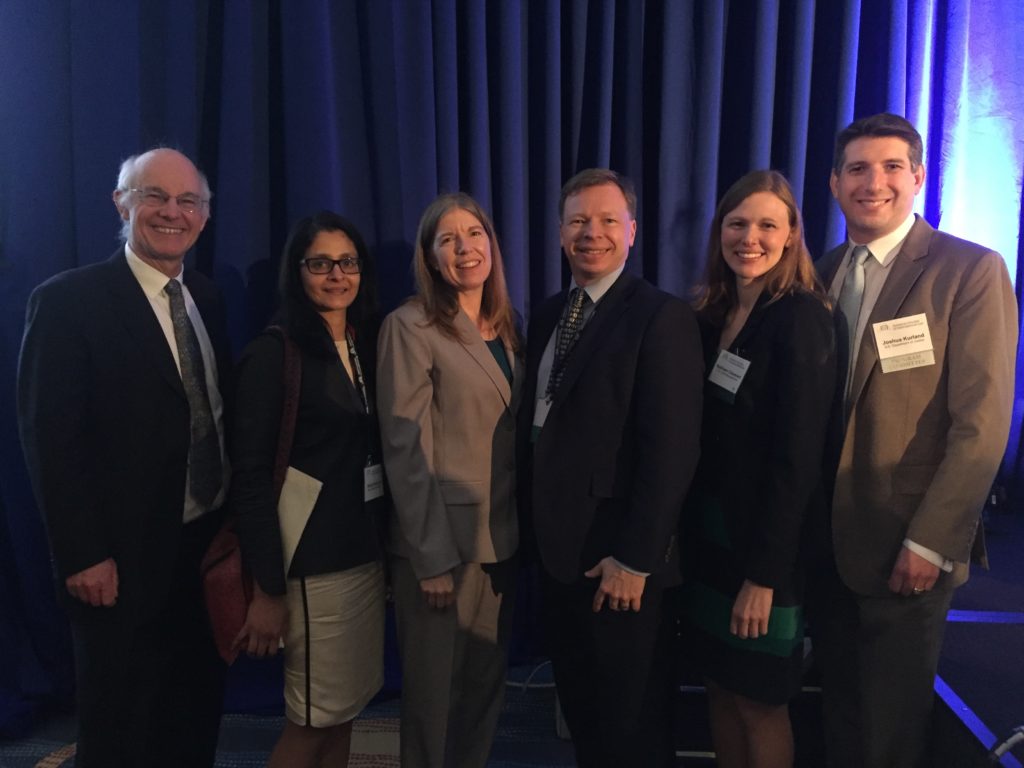The 111th ASIL annual meeting featured a panel on Megaregionals and Brexit. You can read a summary in this ASIL Cable from Amy Porges.
Benedicts Kingsbury, Robin Acharya, Christina Davis, Markus Gehrig, Kathleen Claussen, Joshua Kurland
The 2016 Trans-Pacific Partnership (TPP) aimed to inaugurate an ambitious international legal innovation: pursuit of national regulatory alignment and deep economic co-operation on a “megaregional” scale. Since then, the Brexit vote and the United States’ withdrawal from the TPP have voiced widespread frustration and discontent with elites and the pro-“globalization” policies they support. This antipathy has affected other megaregional projects, such as the proposed EU-US Transatlantic Trade and Investment Partnership (TTIP). Megaregionals, which gained momentum as a deeper and faster alternative to the WTO, now face opposition to what they symbolize, and to how they impact inequality, sustainability, and the human costs of globalization. Yet the issues that they engage are among the most pressing ones stemming from the globalization of commerce: intellectual property rights; new cross-national infrastructure and communications technology; services growth; the booming digital economy; and new patterns of finance and investment. Moreover, the economic narrative has blended with a geopolitical one stemming from the rise of China in shaping the dynamics driving megaregional agreements and megaregulation. This roundtable will debate the merits and future of projects promoting regional and megaregional economic ordering, focusing on the international law values at stake.
Moderator: Benedict Kingsbury, Murry and Ida Becker Professor of Law, and Director, Institute for International Law and Justice, New York University School of Law
Rohini Acharya, Chief of Section, Regional Trade Agreements, World Trade Organization
Kathleen Claussen, Associate General Counsel, Office of the United States Trade Representative
Christina Davis, Professor of Politics and International Affairs, and Associate Chair, Department of Politics, Woodrow Wilson School of Public and International Affairs, Princeton University
Dr. Markus Gehring, Senior Fellow, International Economic Law, International Law Research Program, Centre for International Governance Innovation (CIGI) and Arthur Watts Senior Research Fellow, British Institute for International and Comparative Law (BIICL).



